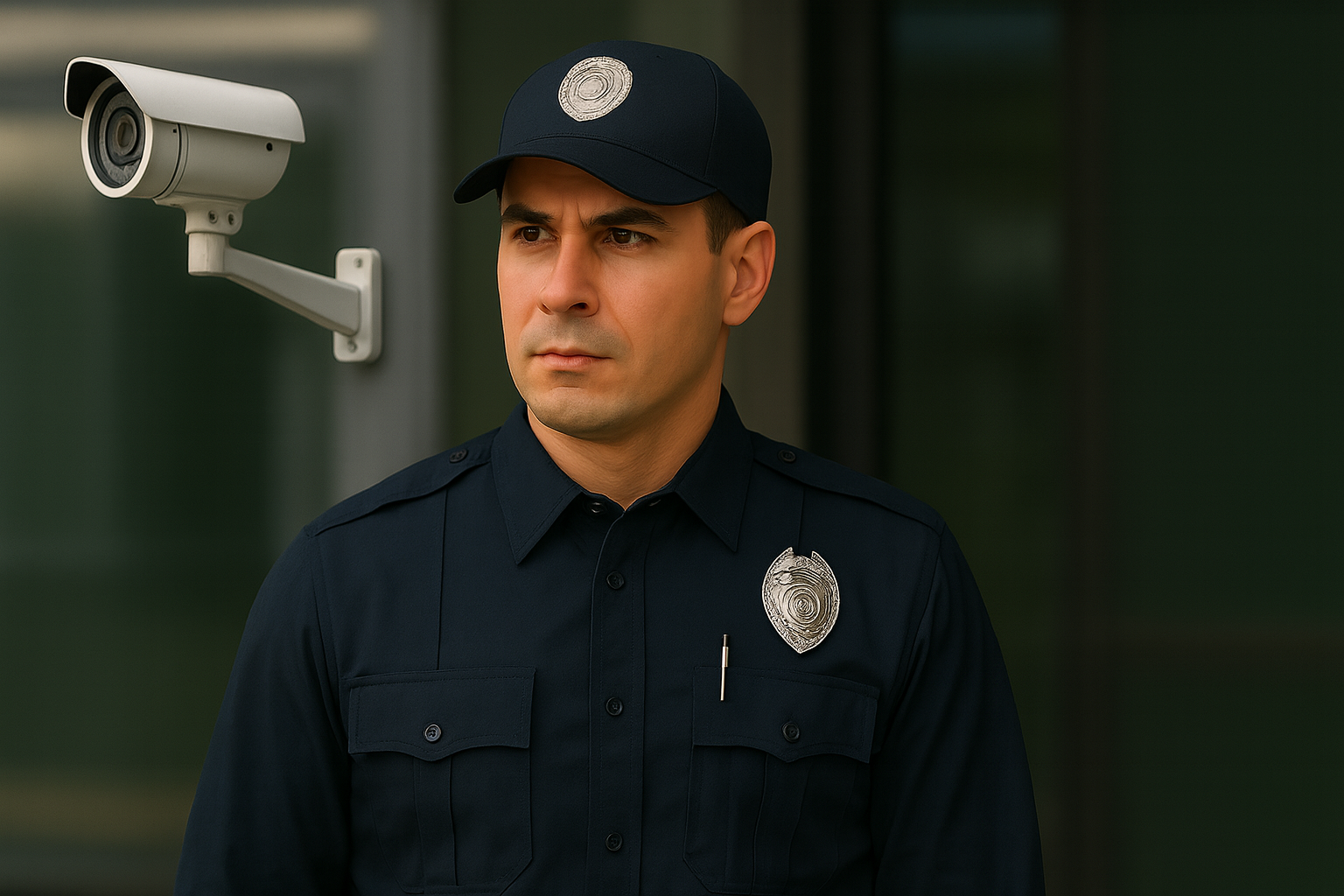Security officers play a crucial role in maintaining safety and order in a variety of settings. Their presence deters crime, provides peace of mind, and ensures that rules and regulations are followed.
Security officers are a key part of the private security industry, working alongside public law enforcement but with distinct roles and responsibilities.
As threats and environments change, the responsibilities of security officers continue to evolve, encompassing a wide range of duties to address modern security challenges. Security officers operate within the limits of their legal authorities, which can include supporting law enforcement, detaining individuals, or conducting citizen’s arrests depending on jurisdiction.
1. From Ancient Watchmen to Modern Security Professionals
For centuries, societies have relied on individuals tasked with watching over communities, markets, and property. These early “watchmen” served a vital role, but their methods were simple: observe and report.

The role of the security officer evolved over time, becoming more structured and professionalized. In today’s environment, a security guard is not just a passive presence—they are trained, equipped, and empowered to protect people, property, and information. Security officers are now employed by a wide range of organizations and industries to provide protection and maintain order. Among the specialized duties that have emerged, loss prevention has become a key responsibility, especially in retail and commercial environments. Some modern security officers are armed, carrying firearms or other weapons, while others serve in unarmed roles depending on the needs and regulations of their employers. The company a security officer works for plays a key role in providing training, career growth opportunities, and upholding industry standards.
2. Why Security Services Have Become Mission-Critical
The modern threat landscape is complex. Businesses face not only theft and vandalism, but also workplace violence, organized retail crime, corporate espionage, and even coordinated cyber-physical attacks. Companies increasingly depend on professional security services to protect their assets. Many organizations partner with private security companies to address their security needs.
Security services today must address:
- Increased threat diversity – Crime isn’t limited to petty theft; it can involve highly organized networks.
- Faster incident timelines – Incidents unfold in seconds, requiring rapid intervention.
- Reputation risks – Public perception can suffer greatly after a security lapse.
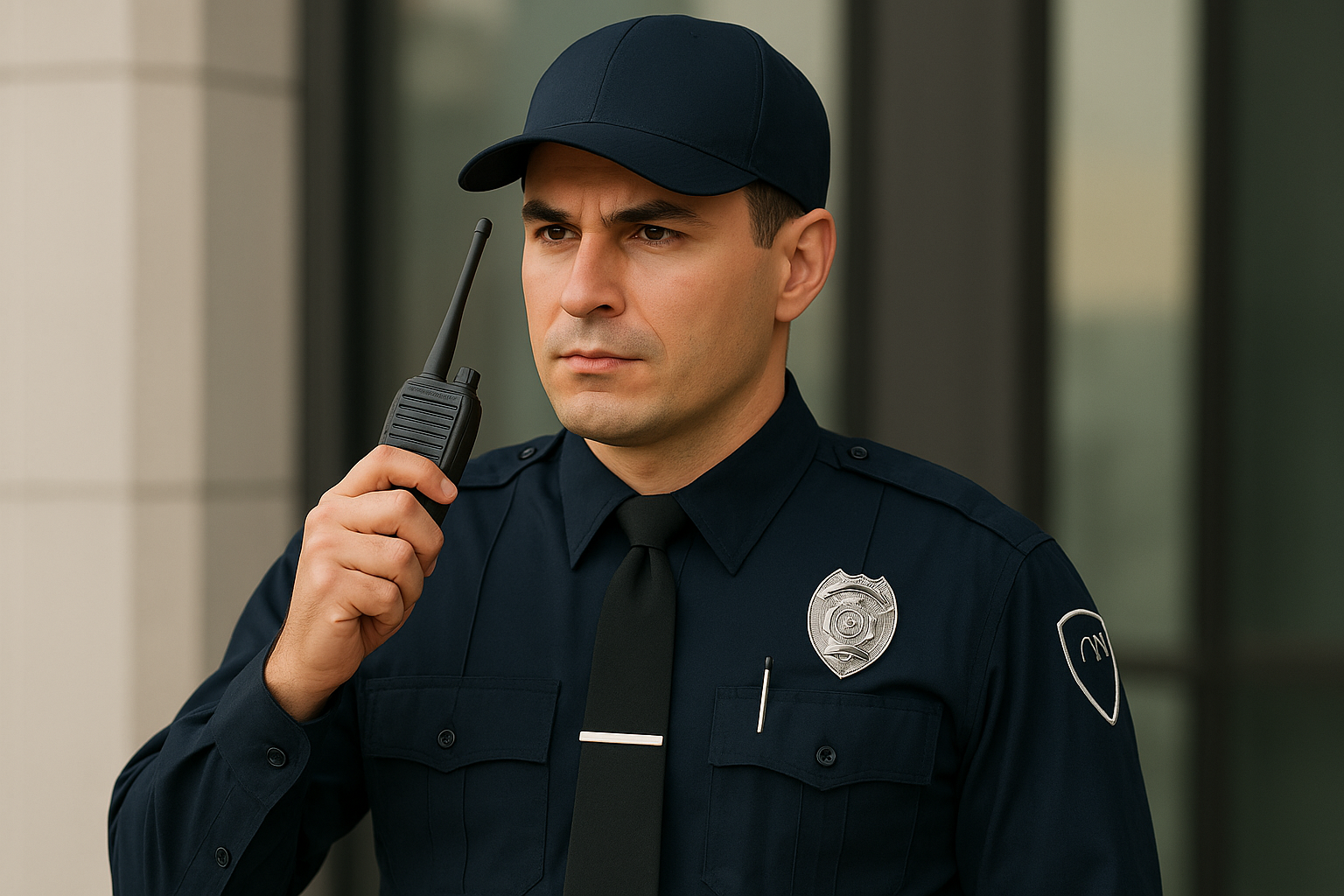
A proactive approach by trained security officers can prevent these risks from turning into costly incidents. The effort required by security officers to stay ahead of evolving threats is significant, demanding ongoing dedication and vigilance.
3. The Limitations of Outdated Security Models
Relying on outdated methods—such as untrained guards, basic lock-and-key systems, or disconnected camera feeds—leaves dangerous gaps.
Weaknesses include:
- Limited situational awareness due to lack of patrol coverage.
- Slow response because guards are not trained in emergency protocols.
- Technology blind spots where equipment is old or poorly integrated.
Just as old passwords in cybersecurity are no longer enough, old approaches to physical security can’t keep up with today’s threats.
Outdated security models often assigned only basic functions to personnel, while today’s security officers perform a broader range of functions, including patrol, access control, emergency response, and specialized duties. Modern officers are also involved in security management activities, such as coordinating security protocols and overseeing incident response.
4. Defining the Modern Security Officer
A security officer in the 21st century is a multi-skilled professional who combines physical presence with strategic thinking. Their duties extend far beyond simply “standing guard.”
Modern security guards are responsible for a wide range of duties and are trained to:
- Perform access control at strategic points.
- Monitor surveillance feeds and live activity.
- Intervene in potentially dangerous situations using de-escalation techniques.
- Assist with evacuations and medical emergencies.
- Serve as a welcoming, informative presence for visitors.
- Maintain contact with the public, colleagues, and emergency services to ensure clear communication and effective response.
- Conduct risk assessment to identify potential vulnerabilities.
These tasks include patrolling, responding to emergencies, enforcing rules, and operating security equipment. Security officers are skilled at dealing with a variety of situations and people, ensuring effective communication and conflict resolution. Guarding property and persons remains a core function of the role.
This versatility makes them a cornerstone of any effective security service.
5. The Many Faces of Security Services
Security services can be tailored to match the environment they protect:
Security services offer a range of positions, from entry-level to specialized roles, allowing individuals to pursue various career paths within the industry. For experienced professionals, security consulting is a potential career path, where experts provide advice and guidance to organizations on improving their security measures.
Effective security often relies on group coordination, where teams work together to ensure comprehensive protection and efficient response to incidents.
Corporate Security
Protecting offices, assets, and executives from both internal and external threats, including providing executive protection as a specialized service to safeguard high-profile individuals from targeted threats.
Many companies have a dedicated security department responsible for overseeing and managing all aspects of corporate safety.
Event Security
Managing large gatherings, ensuring crowd control and crowd management, and preventing disruptions.
Retail Security
Deterring theft, including shoplifting, monitoring suspicious behavior, and protecting staff and customers. Retail security officers are also often tasked with safeguarding money during cash transfers and daily operations.
Healthcare Security
Securing hospitals, clinics, and pharmacies, often requiring specialized training in patient interactions, patient safety, and medical protocols.
Industrial Security
Protecting manufacturing plants, warehouses, and construction sites from theft, vandalism, and safety violations.
Industrial security officers must also be prepared to work in challenging weather conditions to ensure site safety and maintain effective security operations, with workplace safety as a primary objective.
6. The Role of Training in Professional Security
The best security officers are the result of rigorous training programs. These cover:
- Legal guidelines to ensure compliance with laws and regulations.
- Crisis management for situations like fires, medical emergencies, and violent incidents.
- Communication skills for clear reporting and de-escalation.
- Observation and surveillance techniques to spot trouble before it escalates.
- Cultural sensitivity for working in diverse environments.
Many security officers are also required to obtain certification to demonstrate their competence and compliance with industry standards.
Regular re-training keeps security guards sharp and ready.
Quality training is essential for effective security officers and ensures they are prepared for different security positions.
7. Technology as a Force Multiplier
While human judgment is irreplaceable, modern tools greatly enhance the effectiveness of security services:
- AI-enabled CCTV detects unusual movement or patterns.
- Access control systems manage who enters sensitive areas.
- Body-worn cameras increase accountability.
- Drones provide aerial coverage for large events or properties.
- Mobile reporting systems send instant updates to supervisors and clients.
- Remote monitoring allows oversight of multiple sites or locations from a central control room.
The data collected from these security systems is analyzed to identify trends, improve incident response, and optimize overall security operations.
When technology is integrated with skilled personnel, security officers can act faster and more effectively.
8. Cybersecurity and Physical Security: Bridging the Gap
As the security industry continues to evolve, the line between physical and digital threats is becoming increasingly blurred. Today’s security guards and security personnel are expected to do more than just patrol premises—they must also be vigilant against cyber risks that can impact the safety of employees, visitors, and property. Modern security systems now integrate both physical access control and cybersecurity measures, allowing security professionals to monitor for suspicious activity across all fronts. Data protection is now a critical component of modern security strategies, ensuring sensitive information is safeguarded alongside physical assets.
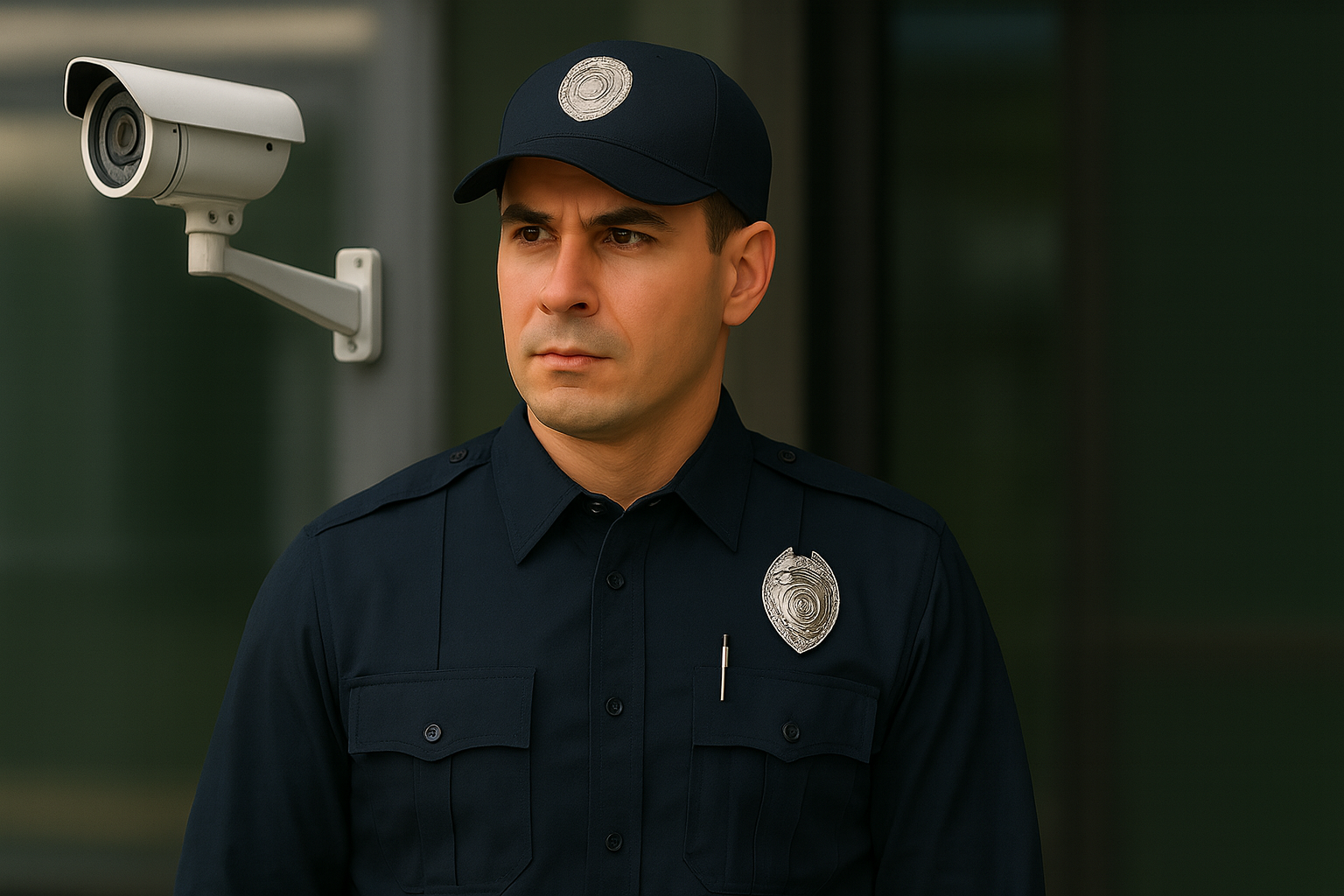
This comprehensive approach means that security service teams are trained to respond to a wide range of incidents, from attempted unauthorized access to data breaches or cyber-enabled theft. By combining traditional patrol duties with the ability to monitor and manage advanced security systems, guards can quickly identify and respond to threats, minimizing property damage and ensuring business continuity. For businesses, this integrated security model not only protects assets but also enhances customer satisfaction by providing a safer, more resilient environment.
As organizations face new challenges such as terrorism, theft, and sophisticated cyber attacks, the ability of security professionals to bridge the gap between physical and digital security is more essential than ever. Investing in cross-trained security personnel and robust access control systems is a critical step for any business looking to safeguard its people, property, and reputation in today’s interconnected world.
9. Identifying Suspicious Activity: The Art and Science
Spotting suspicious activity is both an art and a science—one of the most vital skills in the security industry. Security guards, security professionals, and security agents are trained to recognize subtle signs that something isn’t right, whether it’s an unfamiliar person loitering near restricted areas, unusual behavior from employees or visitors, or unattended packages in public spaces. Threat detection is a core competency for security personnel, enabling them to identify and assess potential risks quickly and accurately. This vigilance is supported by modern security systems, such as surveillance cameras and monitoring software, which help security personnel keep a close watch on premises and quickly identify potential threats.
Security guards don’t just rely on technology; their training and experience enable them to interpret body language, assess situations, and make quick decisions about when to intervene or escalate an issue. By developing these skills, security teams can respond effectively to suspicious activity, preventing incidents before they escalate into property loss or harm to persons. The security industry continues to invest in advanced training and innovative systems to support guards and agents in this critical function, ensuring that businesses and organizations remain one step ahead of potential risks.
10. The Role of Community Engagement in Modern Security
Community engagement has become a cornerstone of effective security in today’s world. Security guards, security personnel, and security professionals are increasingly recognized not just as protectors of property, but as trusted partners within the communities they serve. By building strong relationships with residents, businesses, and other stakeholders, security teams can gather valuable insights, share resources, and respond more effectively to emergencies and evolving threats.
This collaborative approach requires security agents to be skilled in communication, education, and cultural sensitivity, as they deal with people from diverse backgrounds and circumstances. Through community outreach, training programs, and public education, security professionals help individuals and groups achieve their security goals, whether it’s preventing terrorism, reducing crime, or preparing for emergencies. By working closely with law enforcement and local organizations, security teams often collaborate with police during incident response and community safety initiatives, helping to maintain public safety and foster a sense of shared responsibility. As the security industry’s next move, community engagement is essential for developing sustainable, effective solutions that protect both people and property in every environment.
11. Key Benefits of Professional Security Officers
Strong Deterrence
The mere presence of a uniformed security guard can discourage criminal behavior.
Additionally, having security guards on site can deter criminals from targeting the premises.
Immediate Response
Incidents can be contained within seconds, not minutes.
Security officers are trained in responding quickly to emergencies and threats, ensuring swift action to manage any situation.
Customer Assurance
Visitors and staff feel safer, improving morale and trust.
Lower Liability
Professionally handled incidents reduce the risk of lawsuits or insurance claims.
12. Why Businesses Are Investing More in Security
The cost of crime—both in direct losses and reputational harm—is pushing more businesses to invest in security services. An effective security officer team can save an organization millions in losses, legal fees, and crisis management expenses.
This increased investment in security services has also created more job opportunities within the industry, offering a range of roles and career paths for those interested in private security. Many businesses are now seeking comprehensive security solutions tailored to address their unique risks.
13. Future Trends in Security Services
The role of the security guard will continue to evolve:
- Predictive security using AI to identify risks before they happen.
- Cyber-physical integration where digital and on-site security work together.
- Increased specialization with officers trained for specific industries.
As the industry evolves, the demand for specialized security agent roles—such as those focused on executive protection, loss prevention, or law enforcement-related activities—is expected to grow.
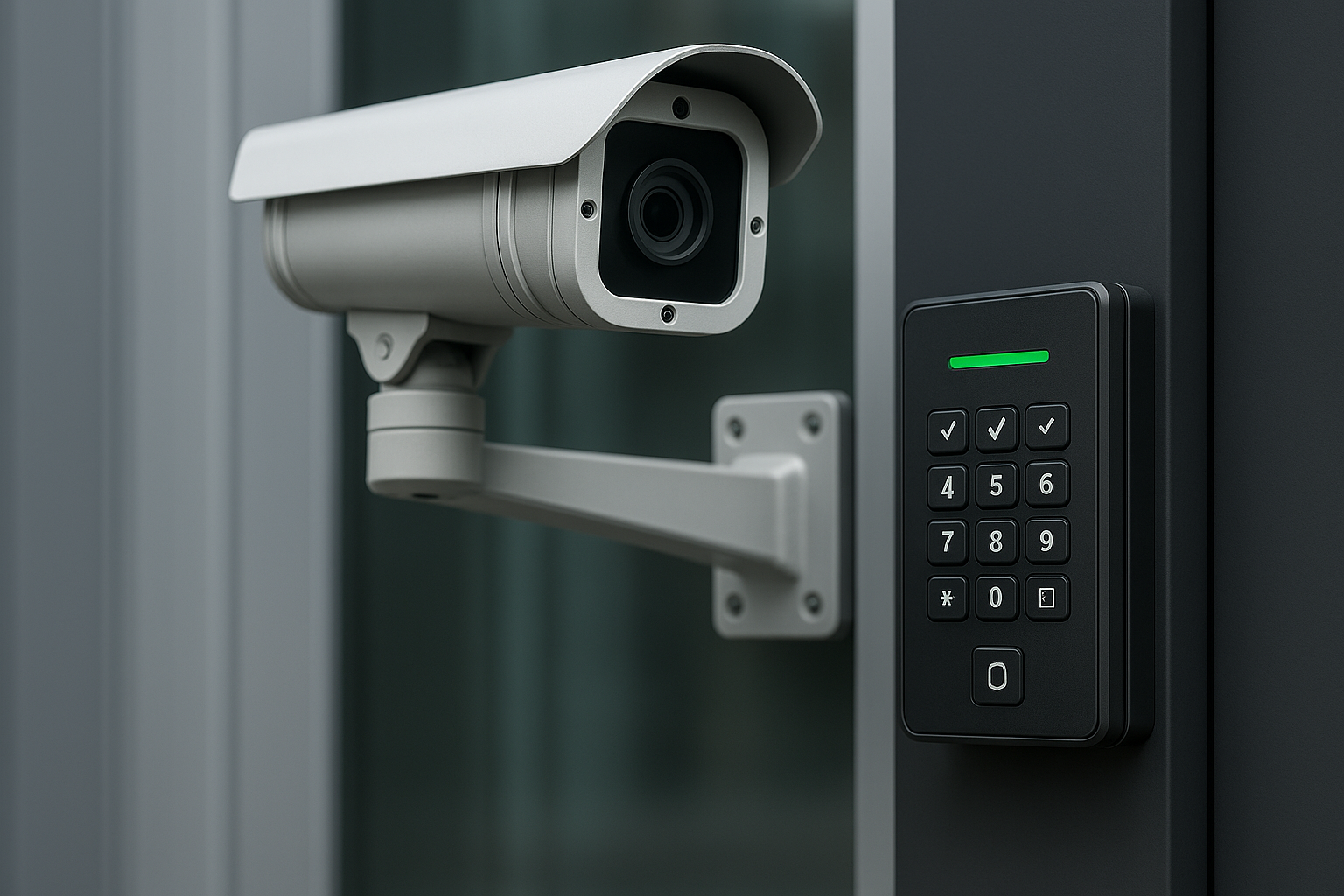
14. Career Opportunities in Security: A Growing Field
The security industry is experiencing rapid growth, offering a wealth of career opportunities for those interested in making a difference. Security guards, security agents, and other security professionals are in high demand across many locations, from government departments and banks to private businesses and public venues. These roles come with a variety of responsibilities, including monitoring security systems, conducting patrols, managing access control, and responding to emergencies or suspicious activity.
With the right training and education, security professionals can develop valuable skills in areas such as surveillance, emergency response, and risk assessment. The industry offers clear pathways for advancement, allowing individuals to move from entry-level guard positions to specialized roles or leadership positions within security services. Whether you’re interested in working with cutting-edge security systems, dealing with high-stakes situations, or providing customer-focused services, there’s a place for you in the security field.
As businesses continue to prioritize safety and invest in advanced security solutions, the need for skilled security personnel will only increase. For those considering their next move, the security industry provides a dynamic environment with opportunities for growth, professional development, and the chance to play a vital role in protecting people, property, and information.
15. Selecting the Right Security Service Provider
When choosing a security services partner, look for:
- Proven track record in your industry.
- Comprehensive training programs.
- Integration of modern technology.
- Strong client reviews and references.
- Ability to scale with your needs.
16. Best Practices for Businesses Using Security Officers
- Conduct regular risk assessments.
- Maintain open communication with your security provider.
- Integrate security into your overall business continuity plan.
- Update protocols as threats evolve.
17. The Human Element: Why People Still Matter
Technology can’t replace the instincts and empathy of a well-trained security officer. People notice subtleties—tone of voice, body language—that machines can’t interpret accurately.
18. Security Guards as Brand Ambassadors
For many visitors, the security guard is the first person they see. Professionalism, courtesy, and helpfulness create a positive impression of the business they protect.
19. How Security Services Improve Emergency Preparedness
From fire evacuations to active shooter situations, trained security officers know how to respond quickly and effectively, minimizing harm and confusion.
20. The Link Between Security and Business Reputation
A single lapse can damage trust. Visible, competent security services send a message of care, safety, and professionalism.
21. Cost-Benefit Analysis of Hiring Security Officers
While hiring security guards involves an investment, the cost of not having them—stolen assets, lawsuits, lost customers—can be far greater.
22. Building a Culture of Security
When security officers are integrated into daily operations, safety becomes everyone’s responsibility, not just the security team’s.
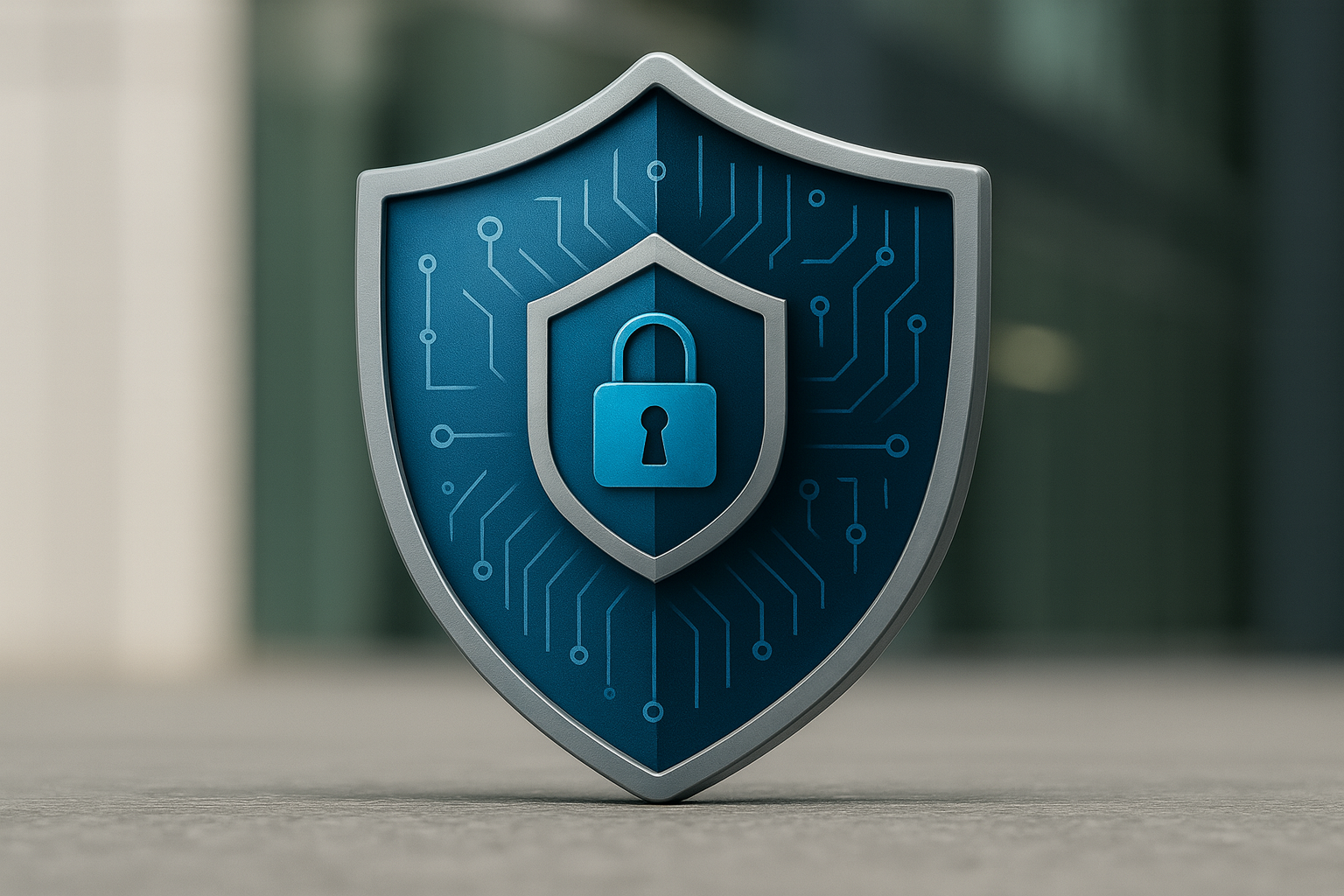
23. Security Services for Specialized Environments
Some industries require niche expertise:
- Airports – TSA-compliant security protocols.
- Banks – Security officers play a crucial role in protecting bank assets, ensuring the safe transfer of money, and implementing anti-robbery procedures.
- Schools – Student protection and emergency drills.
Monitoring and securing doors is also a key aspect of physical security in these specialized environments.
24. St. Moritz Security Services, Inc. (SMSSI)
For organizations seeking a trusted partner, St. Moritz Security Services, Inc. (SMSSI) stands out. With decades of experience, SMSSI delivers customized security services that combine highly trained security officers with the latest technology.
Their services cover corporate, event, retail, healthcare, and industrial security, all backed by rigorous training and a commitment to client satisfaction. Whether you need a single security guard for an event or a comprehensive, multi-location security program, SMSSI delivers with professionalism and reliability.
Learn more at www.smssi.com.
25. Planning the Next Move: Proactive Security Strategies for the Future
In today’s rapidly changing world, the security industry must always be one step ahead. For security professionals, planning the next move means developing proactive strategies that anticipate and neutralize emerging threats before they can impact businesses, employees, or property. This forward-thinking approach relies on a combination of advanced security systems, robust access control, and highly trained security guards who can respond swiftly to suspicious activity, terrorism, or cyber attacks.
Modern security personnel are no longer just reactive—they are equipped with the latest monitoring equipment and technology, enabling them to track real-time developments across many locations. By integrating access control systems and surveillance tools, security agents can quickly identify potential risks and take decisive action to prevent property damage, theft, or unauthorized access. Collaboration is key: security teams work closely with IT, facilities management, and other departments to ensure a seamless, organization-wide approach to security.
To achieve the highest level of protection, businesses must invest in ongoing training for their security guards and personnel. This includes staying up to date with the latest laws and regulations, as well as developing the skills needed to deal with a wide range of circumstances—from emergency responses to everyday interactions with employees and visitors. Security professionals must also be prepared to adapt to changing weather conditions and other external factors that can affect the safety of premises and the well-being of clients and staff.
In many locations, security guards serve as the first point of contact for visitors and employees, making customer satisfaction a top priority alongside maintaining strict security protocols. Their ability to communicate effectively, resolve conflicts, and provide reassurance is just as important as their technical expertise. By equipping security teams with the right resources, training, and support, organizations can create a secure environment that protects people, property, and information—no matter what challenges the future may bring.
Frequently Asked Questions (FAQs)
What qualifications are required to become a security officer?
Qualifications vary by region but generally include background checks, completion of training programs covering legal guidelines, emergency response, and communication skills. Some positions may require additional certifications for armed roles.
How do security officers differ from police officers?
Security officers primarily protect private property and enforce company rules, while police officers enforce public laws and have broader legal authority. Security officers may have limited arrest powers depending on jurisdiction.
What types of environments do security officers work in?
Security officers work in diverse settings including corporate offices, retail stores, healthcare facilities, industrial sites, events, airports, banks, and schools.
How does technology enhance security services?
Modern technology such as AI-enabled CCTV, access control systems, body-worn cameras, and drones assist security officers by improving monitoring capabilities, response times, and accountability.
Can security officers respond to cyber threats?
While traditionally focused on physical security, many security professionals now receive training to recognize and respond to cyber-physical threats, integrating cybersecurity measures with physical security protocols.
What are the benefits of hiring professional security officers?
Professional security officers provide strong deterrence against crime, immediate response to incidents, customer assurance, and help reduce liability risks for businesses.
How are security officers trained to handle emergencies?
Training includes crisis management, first aid, evacuation procedures, and de-escalation techniques to prepare officers for various emergency situations.
What career opportunities exist in the security industry?
The security industry offers roles ranging from entry-level guards to specialized positions such as executive protection, loss prevention, and security management, with opportunities for advancement and professional development.

